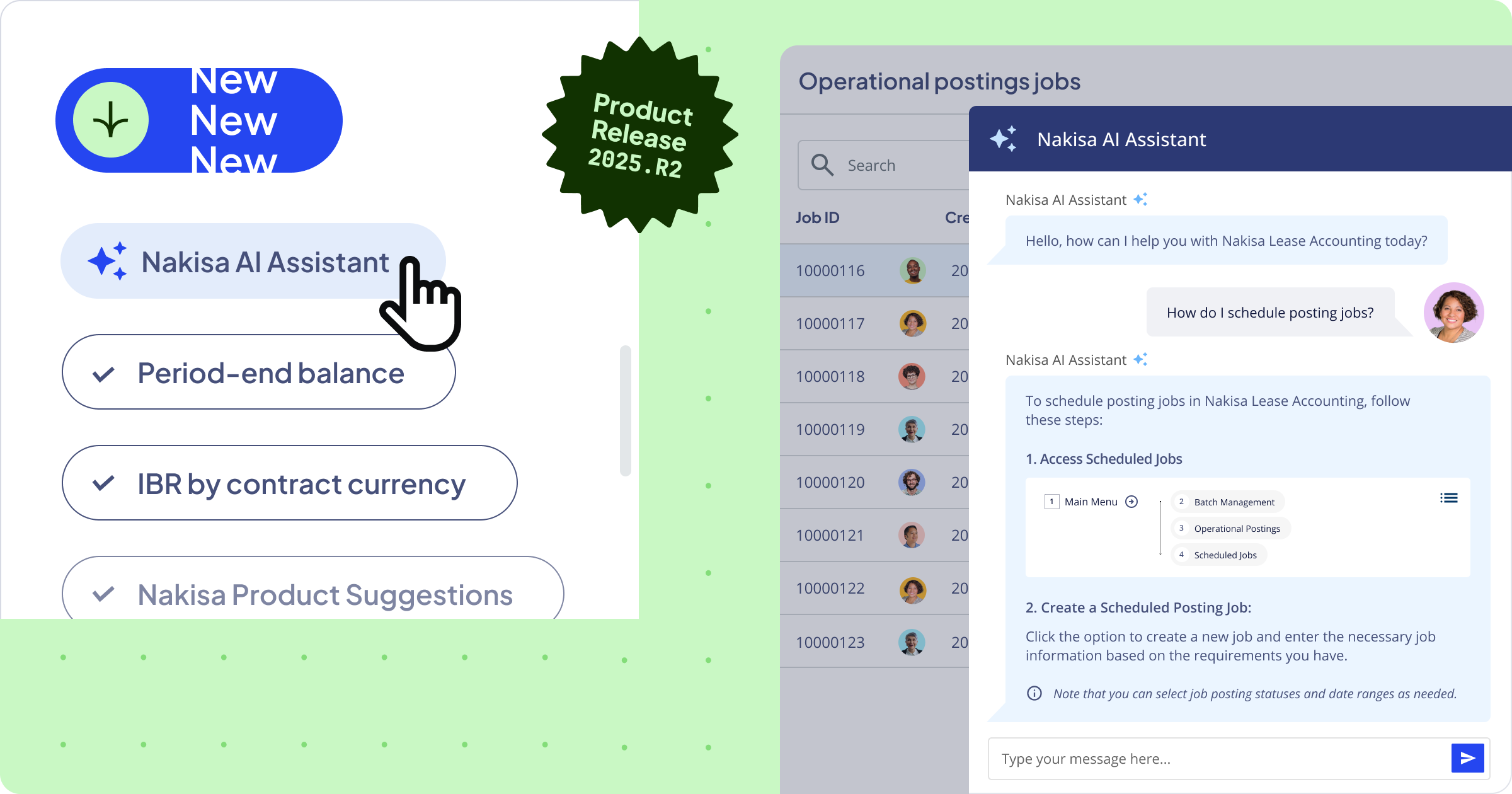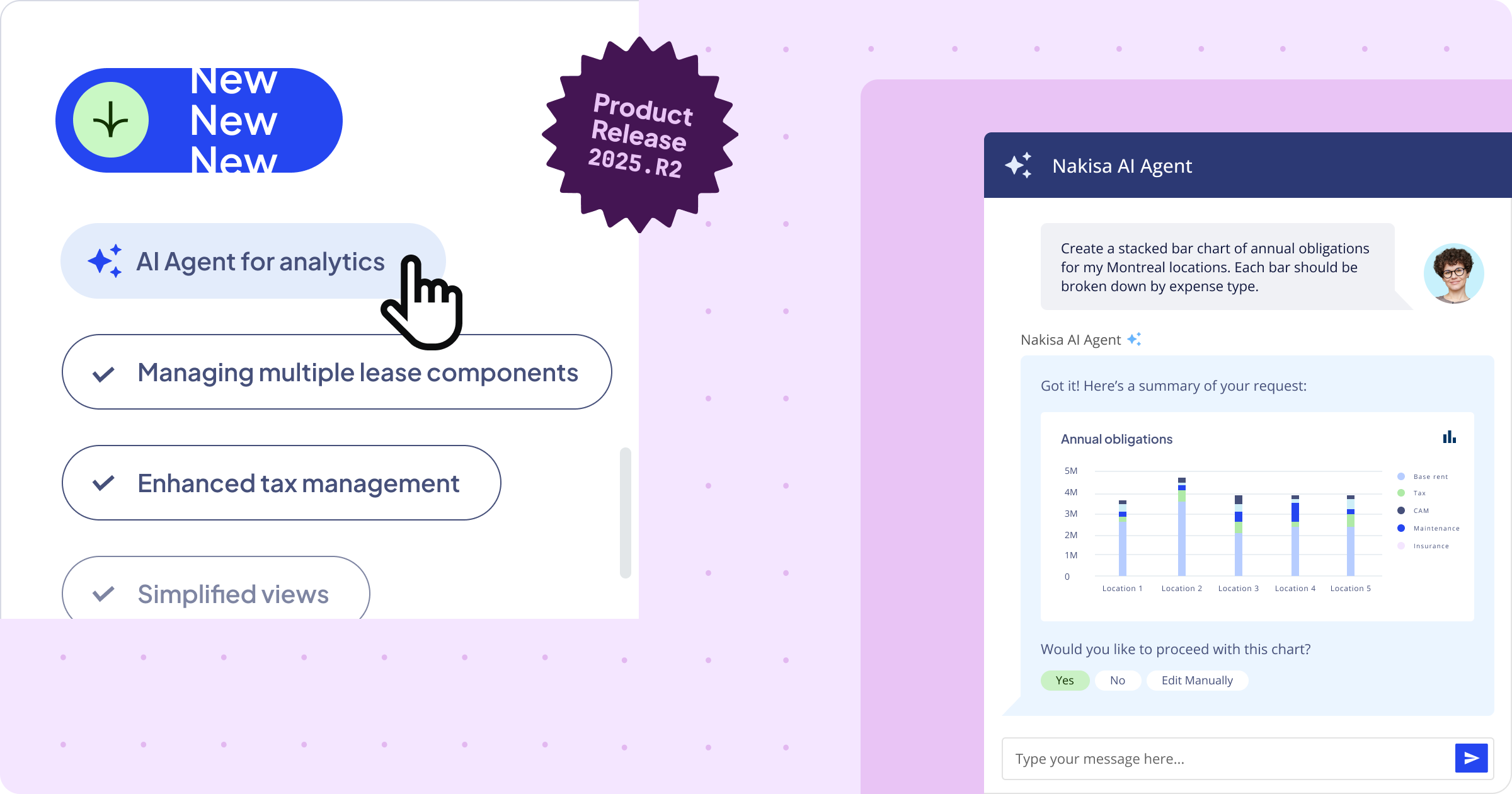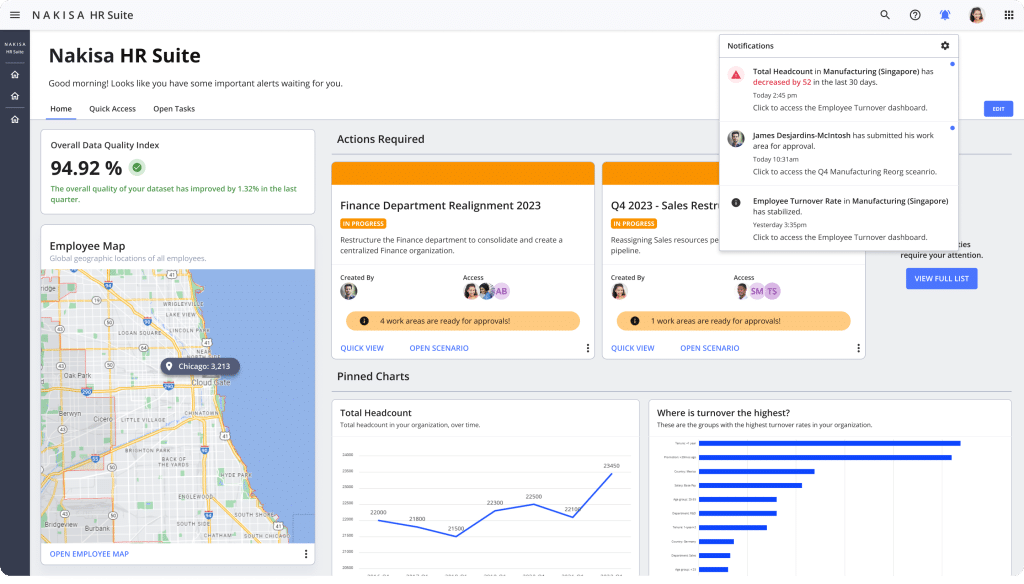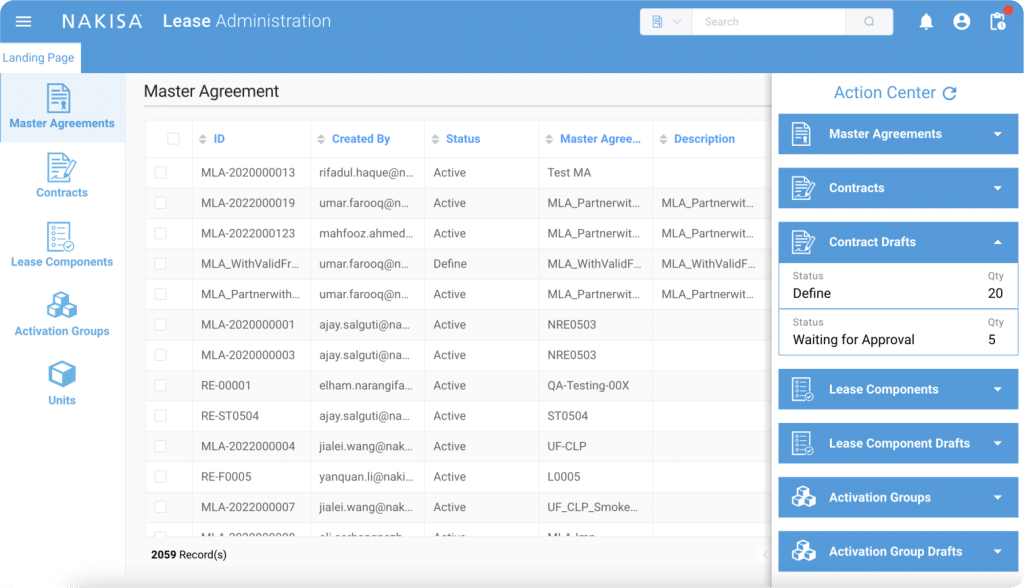About Realcomm & IBcon conferences
Realcomm & IBcon stand out as one of the most trusted and forward-looking forums in the PropTech and smart building industry. The conference brings together thousands of attendees from around the world, including C-level executives, heads of real estate, workplace strategists, and digital transformation leaders, all looking to align their departments and systems around shared business goals.
With expert-led sessions, cutting-edge technology showcases, and extensive networking opportunities, Realcomm & IBcon spark rich conversations and focus on the digital transformation of the built environment.
We at Nakisa were excited to participate at Realcomm & IBcon 2025 and engage in strategic discussions on industry trends, operational challenges, and how software platforms like Nakisa IWMS can meet evolving enterprise needs.
The 2025 edition topics: a convergence of disciplines driving CRE transformation
Realcomm & IBcon 2025, under the theme “The New ROI: Return on Innovation,” delivered a robust agenda that covered the intersection of real estate, operations, and technology. Key sessions focused on AI and data strategy, construction and smart building, operational technology and maintenance, ESG initiatives, cybersecurity, and more. Industry leaders shared field-tested insights on system integration, data governance, intelligent automation, and building lifecycle optimization.
Conversations extended well beyond traditional CRE management, exploring how emerging technologies are actively transforming data strategies, operations, portfolio planning, and the tenant experience. Attendees showed strong interest in sessions on operational efficiency, sustainability, and growing convergence of IT and OT, highlighting a clear demand for integrated, enterprise-grade platforms to support complex real estate ecosystems. From intelligent buildings and cloud-native platforms to robotics, AI assistants, and multi-asset ERP backbones, the event showcased the rapid pace of innovation across commercial real estate.
A defining characteristic of this year’s event was the recognition that commercial real estate is no longer lagging in digital maturity; it’s taking the lead in tech-driven transformation.
Key takeaways from the Realcomm & IBcon 2025
Innovation is real, and so are the returns
From Goldman Sachs’ Intelligent Buildings Program to Walmart’s smart campus design and Netflix’s OT-first workplace strategy, the message was clear: digital transformation in CRE is no longer theoretical — it’s already delivering measurable ROI. Investments are now flowing into foundational technologies like networks, sensors, and data models, unlocking long-term strategic value. Proptech has moved beyond pilots and experiments; it’s now outcome-driven and deeply embedded in daily operations.
AI is powerful, but only with the right foundations
AI was everywhere at Realcomm & IBcon 2025, from Kode Labs’ Kai assistant and outbound lease chatbots to robotic window cleaning and predictive maintenance. Proptech is rapidly adopting conversational, intent-based interfaces that allow users to interact directly with systems and get targeted insights, rather than sifting through static dashboards and irrelevant metrics.
But amid the buzz, one message stood out: without strong infrastructure, AI falls short. Industry leaders consistently emphasized that without centralized, clean data and strong digital infrastructure, AI can’t reach its full potential.
Data centralization is the launchpad for AI
To fully unlock the value of AI, organizations must first solve the challenge of data fragmentation. A recurring theme across sessions was the need to centralize data across asset classes and eliminate silos, establishing a structured foundation that advanced models can actually leverage. Executives from Phillips Edison, EY, and Deloitte echoed this point, emphasizing the shift away from point solutions toward unified platforms. Scalable systems are becoming the operational backbone across industry, from retail and office to industrial and multifamily.
OT-IT convergence is now a C-suite priority
From Infosys and Cisco to Netflix, Operational Technology (OT) is no longer seen as a facilities concern; it has become a strategic priority. As buildings become smarter and more connected, integrating OT and IT has become essential to boosting efficiency, resilience, and sustainability. However, the real estate industry still faces challenges such as legacy building management systems (BMS), siloed networks, and the lack of standardization. The future of intelligent buildings lies in standardization, integration, and proactive governance of OT; and CRE leaders must start now.
OT-IT convergence is already enabling powerful use cases. Predictive analytics, for example, is transforming maintenance operations by anticipating failures before they happen, especially in high-risk areas like refrigeration systems or leak detection. Meanwhile, the rise of digital employees, or AI agents, is reshaping day-to-day processes, automating routine tasks such as tenant sales reporting or lease compliance checks. These trends reflect a broader shift: operational data is no longer just tactical; it’s becoming a driver of strategic decision-making.
The next generation of facility management and building operations is rising
Conversations with professionals from Cadillac Fairview, Delta Electronics, and others revealed a growing urgency to move beyond reactive traditional building management systems (BMS). Operators today demand predictive, remote, and AI-driven capabilities that enhance asset performance, occupant satisfaction, and ESG outcomes. This signals a major shift toward a new generation of facility management and building operations platforms: cloud-native, analytics-powered, and purpose-built.
This digital transformation is happening alongside major changes in how buildings are designed and constructed. With construction costs rising sharply (up to 30% in some regions), the industry is rapidly embracing innovation. Sessions highlighted the use of prefabricated panels, modular systems, and alternative materials to accelerate timelines and reduce labor dependencies. The future looks to be increasingly localized, with examples like 3D-printed office furniture made from recycled materials pointing to a new era of eco-conscious, on-demand manufacturing. Conversations around smart building design made it clear that sensor-rich environments and automated infrastructure will be central to meeting energy goals, safety standards, and tenant experience.
Cybersecurity and open architectures are essential for safe, scalable growth
Cybersecurity and system openness were also key themes. Open protocols such as Open Niagara and Open SIX enable faster deployment of monitoring tools and simplifying compliance with federal and SEC regulations. At the same time, many organizations are moving toward flattened, cloud-enabled architectures. These allow edge devices to stream real-time data, improving anomaly detection and operational control across portfolios.
Sustainability is not just a performance metrics
Sustainability discussions extended far beyond building materials into real-time operational strategies. Presenters emphasized how sub-metering, AI-powered energy analytics, and granular monitoring are reshaping lease dynamics, especially in triple-net agreements, where tenants, not landlords, are responsible for operating costs.
Even minor, automated adjustments, like optimizing temperature setpoints based on real-time occupancy or environmental sensors, can generate substantial energy savings across large portfolios. The takeaway: sustainability is no longer a separate objective; it’s becoming a built-in KPI for CRE operational success.
Wrapping up
Realcomm & IBcon 2025 made one thing clear: the future of commercial real estate belongs to those who can turn operational complexity into actionable intelligence. From AI-powered maintenance to intelligent lease oversight, the tools are available and evolving fast.
For real estate and facilities teams, the focus is shifting from reactive problem-solving to proactive, insight-led operations. The path forward lies in integrated platforms that break down silos, surface meaningful insights, and empower teams to act with precision and purpose.
We at Nakisa were thrilled to participate in Realcomm & IBcon 2025. Throughout every conversation and session, it became clear that our vision for a next-generation IWMS aligns perfectly with the direction of the CRE industry. Nakisa is ready to lead in this fast-evolving market—not only today, but well into the future.
We’re proud to be part of a community that values collaboration, innovation, and continuous improvement, and we’re already preparing for the 2026 conference. For industry peers focused on shaping the future of commercial real estate, we highly recommend attending Realcomm & IBcon.
To the executives, advisors, and partners the Nakisa team engaged with, thank you. We look forward to continued collaboration and advancing the industry together.






